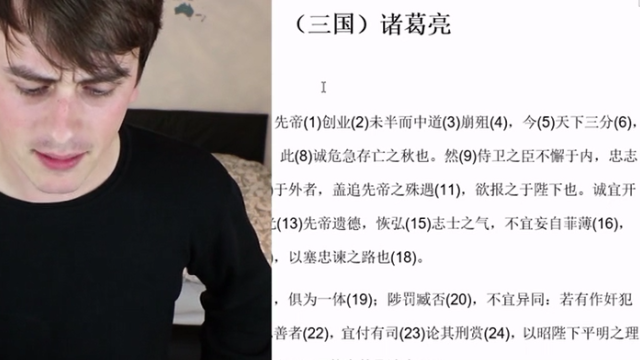【经典名著阅读】《红字》第十三章(上)
作者:Nathaniel Hawthorne
2011-08-23 10:00
It was perceived, too, that while Hester never put forward even the humblest title to share in the world's privileges- further than to breathe the common air, and earn daily bread for little Pearl and herself by the faithful labour of her hands- she was quick to acknowledge her sisterhood with the race of man, whenever benefits were to be conferred. None so ready as she to give of her little substance to every demand of poverty; even though the bitter-hearted pauper threw back a gibe in requital of the food brought regularly to his door, or the garments wrought for him by the fingers that could have embroidered a monarch's robe. None so self-devoted as Hester, when pestilence stalked through the town. In all seasons of calamity, indeed, whether general or of individuals, the outcast of society at once found her place. She came, not as a guest, but as a rightful inmate into the household that was darkened by trouble; as if its gloomy twilight were a medium in which she was entitled to hold intercourse with her fellow-creatures. There glimmered the embroidered letter, with comfort in its unearthly ray. Elsewhere the token of sin, it was the taper of the sick-chamber. It had even thrown its gleam, in the sufferer's hard extremity, across the verge of time. It had shown him where to set his foot, while the light of earth was fast becoming dim, and ere the light of futurity could reach him. In such emergencies, Hester's nature showed itself warm and rich; a well-spring of human tenderness, unfailing to every real demand, and inexhaustible by the largest. Her breast, with its badge of shame, was but the softer pillow for the head that needed one. She was self-ordained a Sister of Mercy; or, we may rather say, the world's heavy hand had so ordained her, when neither the world nor she looked forward to this result. The letter was the symbol of her calling. Such helpfulness was found in her- so much power to do, and power to sympathise- that many people refused to interpret the scarlet A by its original signification. They said that it meant Able; so strong was Hester Prynne, with a woman's strength.
人们也注意到:海丝特除去呼吸共同的空气,并用双手一丝不苟的劳作为她自已和小珠儿挣得每日的面包之外,对分享世上的特权连最卑微的要求都从不提出;反之,一有施惠于人的机会,她立即承认她与人类的姊妹之情。对于穷苦人的每一种需要,她比谁都快地就提供了她菲薄的支援;尽管那些心肠狠毒的穷人对她定期送到门口的食物或她用本可刺绣王袍的手指做成的衣物,竟会反唇相讥。在镇上蔓延瘟疫的时候,谁也没有海丝特那样忘我地献身。每逢灾难,无论是普遍的还是个人的,这个为社会所摒弃的人,都会马上挺身而出。她来到愁云紧锁的家庭,并非作为客人,而是作为理应到来的亲人;似乎那室内晦暗的微光成了她有权与她的同类进行交往的中介。她胸前绣着的字母闪着的非凡的光辉,将温暖舒适带给他人。那字母本来是罪恶的标记,此时在病室中却成了一支烛光。在受难者痛苦的弥留之际,那字母甚至会将其光辉跨越时间的界限:在砚世的光亮迅速暗淡下去、而来世的光亮还没照到死者之前,为他照亮踏脚的地方。在这种紧急情况下,海丝特显示了她那可贵的温厚秉性:那是人类温情的可靠源泉,对任何真正的需要都有求必应,哪怕需要再大,也绝不会枯竭。她的胸口虽然佩着耻辱牌,对有所需要的人却是柔软的枕头。她是自我委任的“慈善的姊妹”;或者,我们完全可以说,人世的沉重的手掌曾经这样委任了她。但当时无论人世或她本人都没有期待着她会不负所望。那字母成了她响应感召的象征。由于从她身上可以得到那么多的支援——她深富同情心又极肯助人——许多人都不肯再按本意来解释那红色的字母“A”了。他们说,那字母的意思是“能干”①;海丝特·白兰只是个弱女子,但她太有力量了。











